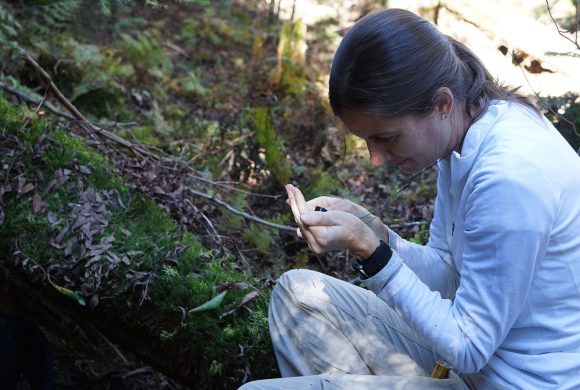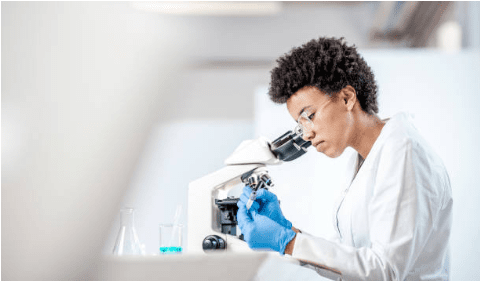Biology is one of the cornerstones of modern science. It is key to understanding how our world works and how our bodies realize their full potential. There are many kinds of biological fields you can specialize in.
Job aggregators like Jooble can even help you find marine biologist openings or positions in other specific areas, regardless of your opportunities. Your qualifications will come from an intensive background in scientific practice.
To become a successful biologist, one must put themselves through hard work and perseverance. Here is a guide on how to start.
Where to Study to be a Biologist

The first thing you need to do to become a biologist is getting yourself the proper qualifications. There is a multitude of ways to get the education you need. Doing well in college can be the first stepping stone.
Following this up with a university degree will be the next step. You can work on many subjects that will be specific to your chosen course. Examples include:
- Biology
- Biological Science
- Ecology
- Marine Biology, etc.
The main subjects you need will be English, Maths, and Science. Having a few A-levels under your belt will help the application process. Luckily, you can start specifying in biology from this point onwards. The university degree you study for will be a postgraduate position.
If you wish to get right into the thick of it, there are also apprenticeships you can do too. These can start after your A-levels or from your university degree.
The following examples you can apply for are Laboratory Scientist, Research Scientist, and Bioinformatics Scientist. These apprenticeships will have you working in a lab directly and give you real experience in the field.
What You Will Need to be a Biologist
![Idaho National Laboratory [CC BY 2.0 (https://creativecommons.org/licenses/by/2.0)]](https://earthbuddies.net/wp-content/uploads/2019/11/Biomass_processing_9195222922-580x390.jpg)
After years of study, you will be knowledgeable in everything you need to start your career. Here we will go over the basics of what you should know now. Biology will be your main point to jump off of. This includes any relevant information you know on a specific part of biology you wish to work in.
This will help with potential interviews. General knowledge is fine, but showing expertise will be how to stay above the competition. Having the ability to be thorough in your research and paying attention to details is an important skill. This will be what employers will look for during interviews.
Other skills you need will be commonplace in many professional environments but vital nonetheless. Having writing skills and communication skills is sorely needed. You will be asked to provide many reports on your findings and may even be asked for presentations.
Your analytical skills will be shown in your work, depending on how thorough you are with the research. You must have the power to back up your appointment with hard evidence and a full analysis of the findings.
This may be specific, but you also mustn’t be afraid to get your hands dirty. A lot of the time, you may go out into the field to collect biological samples. This will include going into some dirty areas or harsh wilderness.
Your hands must equally be steady in the lab too. It is essential to handle all samples with the utmost care. There can be no room for clumsiness in this field of study. This is something interviews may test you on when given a chance.
Daily Work Day

Your average work day can be hectic, long, and full of endless tasks. A lot of what you do will entirely depend on what field of study you work in. However, a lot of the functions will remain the same throughout.
It mainly depends on what your current objective will be in the lab. Biology is about working towards scientific breakthroughs that can better help society. These breakthroughs will come in a variety of goals. You could be helping out the livestock of an endangered species. You could be working towards finding new ways to look after the environment.
There may be a need to develop new ways of treating illnesses. Maybe you could even discover entirely new diseases altogether. Where you will once again be malleable. The laboratory is where a lot of biologists will be performing their tasks.
The lab will include a range of equipment you will use for different means. Collecting and analyzing samples will be done through microscopes and glass panels. Protective clothing will be advised for the more volatile samples you will handle. Health and safety are a top priority.
Where You Go from Here

Your career path can lead to many destinations on the road to becoming a successful biologist. New opportunities will be available if you have grown to become a respected scientist. You could become a manager and run your own research center.
This will give you a chance to study what you want. You could become a teacher and help potential new candidates for the next generation of scientists. You can also become a scientific journalist, where you post and reflect on the research you have accomplished.
The correct resources can make your career path a little easier. Online job sites will not include more specifics to better suit your needs. You can even present your current work as part of your online CV. This provides better chances of getting the bio job of your dreams.



Leave a Reply